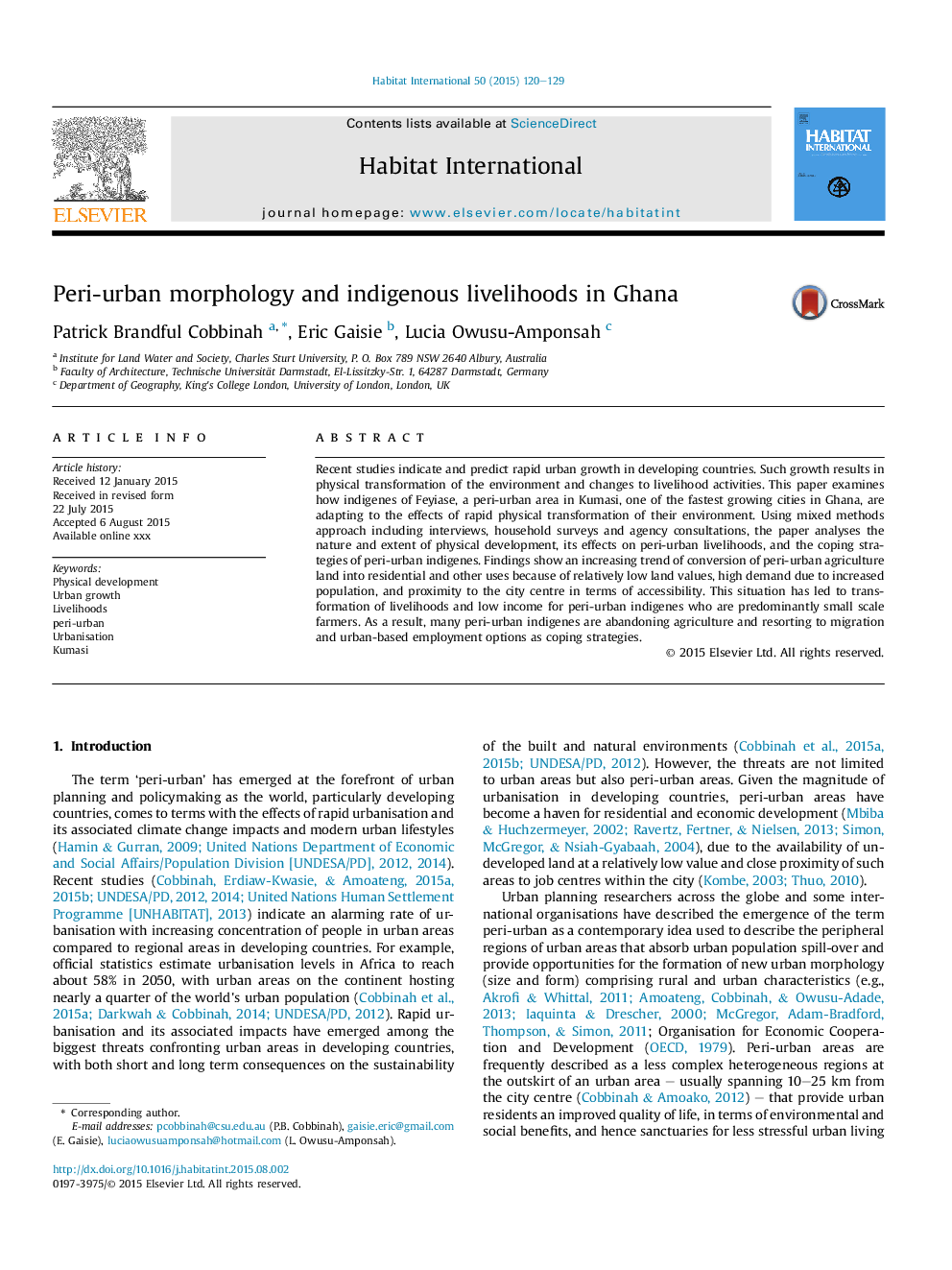| Article ID | Journal | Published Year | Pages | File Type |
|---|---|---|---|---|
| 7455872 | Habitat International | 2015 | 10 Pages |
Abstract
Recent studies indicate and predict rapid urban growth in developing countries. Such growth results in physical transformation of the environment and changes to livelihood activities. This paper examines how indigenes of Feyiase, a peri-urban area in Kumasi, one of the fastest growing cities in Ghana, are adapting to the effects of rapid physical transformation of their environment. Using mixed methods approach including interviews, household surveys and agency consultations, the paper analyses the nature and extent of physical development, its effects on peri-urban livelihoods, and the coping strategies of peri-urban indigenes. Findings show an increasing trend of conversion of peri-urban agriculture land into residential and other uses because of relatively low land values, high demand due to increased population, and proximity to the city centre in terms of accessibility. This situation has led to transformation of livelihoods and low income for peri-urban indigenes who are predominantly small scale farmers. As a result, many peri-urban indigenes are abandoning agriculture and resorting to migration and urban-based employment options as coping strategies.
Related Topics
Social Sciences and Humanities
Social Sciences
Development
Authors
Patrick Brandful Cobbinah, Eric Gaisie, Lucia Owusu-Amponsah,
